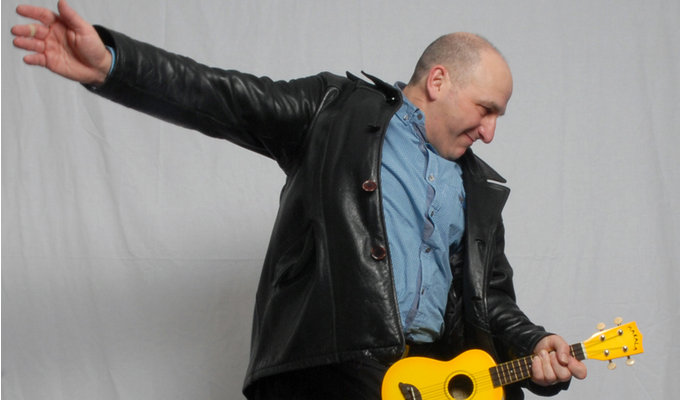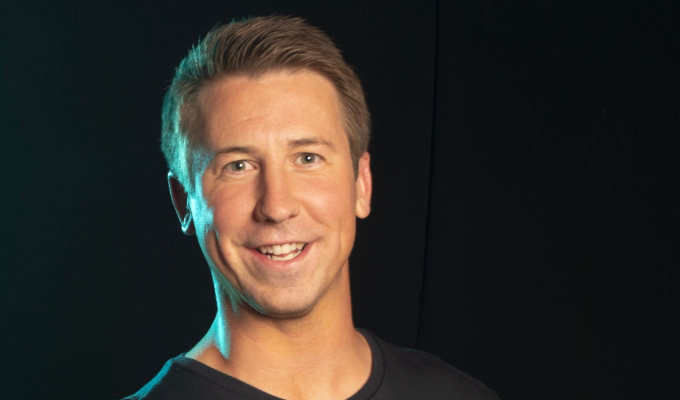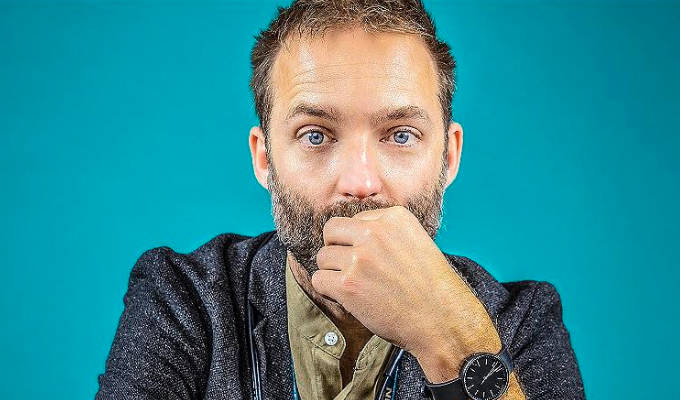
The links between comedy and autism
Dave Cohen explores...
This week a new drama about autism starts on BBC One, The A Word. Suddenly autism is everywhere in TV drama. It’s the perfect television-friendly diagnosis – people with autism don’t look different, they can be as attractive as the next TV face, but their difficulty fitting in with society’s norms puts them into conflict with the world. The journalist Simon Hattenstone and his daughter (diagnosed with Asperger’s syndrome) have applauded the trend, but added the question: where are the laughs?
In comedy we’ve been doing autism for years, even when we haven’t known it. Frank Spencer as the man who wouldn’t grow up was an early sitcom prototype, while Dougal from Father Ted and Daisy from Not Going Out are characters from a similar place, best known for taking everything literally. Martin Bryce, played by Richard Briers in Ever Decreasing Circles, is the brilliantly-realised character who would be described now as textbook Asperger’s, even though the diagnosis wasn’t known at the time that Esmonde and Larbey were writing their groundbreaking sitcom.
Recently we’ve had more explicit characters like Moss from The IT Crowd, and arguably the entire cast of Big Bang Theory as well as David Brent and his alter ego Ricky Gervais (is it that way round? I can’t remember), a person (or ‘character’) who completely misreads social situations.
What also struck me more recently, is that there seem to be a remarkable number of links between autism and stand-up comedy. When I was working as a stand-up in the 80s and 90s, it wasn’t so clear – there was much less knowledge about autism, and people were known by less charitable terms, such as lazy, stupid, dim – or crazy. Not ‘look at me, I’m the bonkers one’ crazy, more ‘I’m going to do something weird and unsettling now’ crazy. I remember one comic buying a large pack of sweets at a motorway services, then just before we drove off he emptied the entire contents onto the garage forecourt.
I did find that of all the social groups I’d ever been a part of, stand-ups were the crowd I felt most at home with. I was interested to meet, for the first time in my life, quite a few people like me, cripplingly shy unconfident characters who nevertheless came to life when talking on stage to a roomful of strangers.
I am not saying all stand-ups are autistic, but it is worth considering the life of stand-up comedy and comparing it to that of the person with autism (although every autistic person is different).
There is the monologuing – some autistic people will talk for long periods of time, they won’t allow themselves to be interrupted, and as far as they are concerned what they have to say does not require any contribution from the listener. Sounds like a stand-up set to me.
Some people with autism have difficulty showing their emotions, they may be angry, anxious, or totally calm but you can’t read it by looking at their faces. The word ‘deadpan’ comes to mind.
There is a myth that all people with autism are precociously gifted in a creative sphere. This is not always the case, but I do remember among my contemporaries a number of comics with extraordinary skills that fed into their comedy careers – one with an incredible photographic memory, others with astonishing magic and music skills. I’m not saying those people were autistic, but their instinctive brilliance in these spheres was comparable to how such ability sometimes exists among the autistic.
Then there is behaviour in social situations. If you spend enough time around stand-up comedians, or indeed, are one, you’ll start to notice that together they can be a very sociable lot. Put them out there in the real world with supposedly ‘normal’ functioning humans, and watch how the flame that burned brightly for 20 minutes under the spotlight has been almost completely extinguished.
This is the reason why so many people, mistakenly in my view, say comedians are sad people. ‘Behind the mask of jollity and the ability to make others laugh,’ runs the perceived wisdom, ‘lurks a great big misery guts.’ I now believe this can sometimes be down to a trait they share with many people on the autistic spectrum, which is an inability to read social situations, and to contribute to social discourse in what are considered to be normal ways.
It’s true there are well-documented links between comedy and depression. Comedians including Rob Delaney, Larry David and Steve Coogan have talked about the issue at length, and of course Robin Williams’s own battles have been examined forensically. Autism is not a mental health issue like depression, but there is a very high incidence of depression among people with autism, as their struggle to survive in the non-autistic world increases, the older they become.
I’m doing a new one-man show which is about falling out with my dad. I suspect of the 500 or so male stand-ups currently working in comedy I am probably the 499th to have done this. In my defence, this is a subject turned to repeatedly by some of the greatest literary talents including Shakespeare, Dickens, Tolstoy, Joyce and Russell Kane.
What I have come to realise since my father died, is that he was almost certainly on the autistic spectrum. Of course we had rows, as fathers and sons do, but I’ve come to see that some of his behaviours towards me, which seemed outrageous at the time, were down to his own inability to empathise, or read situations in my life. The fact that I had inherited a milder version of those traits (there is evidence that some autism is passed down genetically) meant communication between us was never going to be quoted at the Algonquin round table.
Dad came from an era before diagnoses were given, or autism was even recognised. By the way, I don’t mean he was autistic in that well-meaning but lazy way that most men say ‘most men are autistic, when I was ten I could recite the names of every football ground in the UK’. Most men often do possess at least one autistic trait, few shine in social situations unless their favourite topic is up for discussion, or their glittering conversation has been well oiled by several units of alcohol. But you won’t be given a diagnosis for that alone.
One final comparison between stand-ups and people with autism – both have, in certain cases, an ability to focus single-mindedly on one interest that can seem astonishing. For people who’ve spent their entire lives struggling to communicate on a personal level with family and friends, to suddenly find a roomful of people not only prepared to listen to their every word, but to laugh heartily, gives them an incentive to carry on. They may have been labelled at school as ‘stupid’, ‘slow’, ‘lazy’ or ‘difficult’, now they have found a way to prove those people wrong. You’ll know when you meet someone like that, and you’ll know not to stand in their way.
• Arthur Smith Rhymes, With Dave Cohen, is on Thursday March 24 at the Poetry Cafe, London. Details here
Published: 18 Mar 2016






